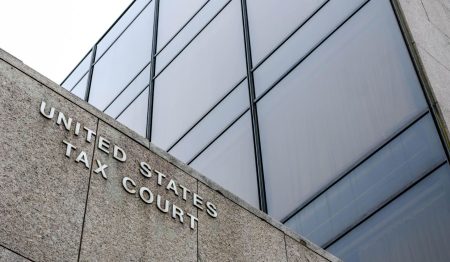The Supreme Court will not hear a Michigan foreclosure case related to a tax delinquency. On Oct. 2, 2023, the nation’s highest court denied the petition for a writ of certiorari.
The focus of the case was whether foreclosing on a home for not timely paying property taxes constituted a violation of the federal Takings Clause when the home was worth more than the tax delinquency. If that sounds vaguely familiar, the issue is essentially the same one the Court considered in Tyler v. Hennepin County. The Supreme Court unanimously ruled for the taxpayer in that case, finding that the surplus value is protected by the Fifth Amendment.
Petition For Writ of Certiorari
The Supreme Court has original jurisdiction over certain kinds of cases. Those cases go straight to the Supreme Court—a good example would be a dispute between the states.
However, most cases don’t have original jurisdiction. To be heard at the Supreme Court without having original jurisdiction, the losing party must file a petition seeking review. If the Supreme Court grants the petition and decides to hear the matter, it’s called a writ of certiorari. If the Supreme Court turns the petition down, it’s referred to as certiorari denied or denied certiorari. A denial does not necessarily mean that the Supreme Court agrees with the appellate court’s findings—it simply means that the appellate decision will stand.
That’s what happened here. The result is that the Sixth Circuit’s ruling in favor of the property owner remains in place.
Background
In this case, Marion Sinclair owned real property in Southfield, Michigan. Sinclair owed $22,047.46 in delinquent property taxes, interest, penalties, and fees.
Under Michigan’s General Property Tax Act, a local taxing authority may foreclose on a property for nonpayment of taxes after a nearly three-year process that includes notice and multiple chances for the owner to pay the delinquent taxes.
Here, the county foreclosed on Sinclair’s property. Sinclair does not contest that she received all the required notices, nor does she claim that she made timely payments.
Approximately three years after a delinquency, the country can declare a foreclosure, and the title is transferred to the county treasurer. The state or local municipality has the right to claim the property in exchange for the payment of unpaid taxes (plus interest and other costs) to the county. If they choose not to exercise the right, the property is put up for sale at a public auction.
In this case, the city claimed Sinclair’s property by paying Oakland County the minimum bid, and the title was transferred to Southfield. That means that there was no surplus.
Sinclair didn’t expressly object to what happened to this point. As she claimed in her petition, her concern is what the City did next—it transferred the property to the Southfield Neighborhood Revitalization Initiative for a nominal amount. The Initiative, a for-profit organization, has rehabbed similar tax-delinquent properties and sold them. Sinclair alleges that what happened to her, and homeowners like her, was part of a conspiracy to unlawfully target properties for their surplus value.
Rafaeli Distinguished
In another high-profile case, Rafaeli, LLC v. Oakland County, the Michigan Supreme Court held that when a tax-foreclosed property is sold at auction, the taxpayer is entitled to the difference between the sale price and the minimum bid. Keeping the surplus, they found, is considered an unlawful taking. But the Rafaeli court held there is no takings claim without a surplus. Since the city paid the minimum bid in Sinclair, the county claimed there was no surplus, and therefore, no violation of Rafaeli.
Petitioners And Sinclair
The petitioners to the Supreme Court were Andrew Meisner, Oakland County Treasurer, and Oakland County, Michigan—not Marion Sinclair. As the losing party at the appellate level, they petitioned for writ of certiorari.
However, Sinclair filed the initial court action in district court. She also sought to represent a proposed class of former property owners in Southfield who also lost their homes through tax foreclosure proceedings (the proposed class is also similar, procedurally, to Tyler). The district court dismissed her complaint on Feb. 28, 2022, finding, among other things, that under Rafaeli, the only property interest that can be pursued in a takings action in a foreclosure is for the surplus proceeds and, as noted, Oakland County received no surplus proceeds here.
Sinclair appealed to the Sixth Circuit. The Sixth Circuit had reversed the district court’s order on Dec. 29, 2022, holding that a taking under the Federal Takings Clause occurs the moment a Michigan tax authority forecloses and takes “absolute title” to a delinquent taxpayer’s property because the authority has also taken the owner’s “equitable title.”
This, the Sixth Circuit found, made Michigan’s right-of-first-refusal-without-a-sale approach unconstitutional under federal law—specifically the Fifth Amendment under the U.S. Constitution. The Fifth Amendment makes clear that private property shall not “be taken for public use, without just compensation.”
Tax Authority Argument
The petitioners argued that the Sixth Circuit’s decision is contrary to the notion that different state courts might view property rights and takings claims differently. That, they claim, supplants a recent Michigan Supreme Court decision. And, they suggested, it created a circuit split (referencing the Eighth Circuit decision in Tyler, which would later be overturned at the Supreme Court).
The tax authorities argued that Michigan property law alone should dictate the result in this case. They claim that the Sixth Circuit’s decision effectively struck down a state statute and rewrote state property law on an issue that had already been decided by the state’s highest court.
Taxpayer’s Argument
Sinclair argued that the Sixth Circuit correctly held that the county’s actions amounted to an unlawful taking, violating the federal constitution. Therefore, she claimed that the review at the Supreme Court was unwarranted. Additionally, Sinclair noted that the Supreme Court recently resolved this issue in Tyler, effectively resolving the circuit split and indirectly affirming Hall v. Meisner (The Supreme Court denied the petition for a writ of certiorari in that case on June 20, 2023).
Sixth Circuit’s Findings
The Sixth Circuit ultimately vacated the district court’s judgment to the extent that it denied Sinclair the right to file a second amended complaint alleging among other things, a federal takings claim, a procedural due process claim, and an unjust enrichment claim against Oakland County. The Sixth Circuit ordered the case remanded (sent back) to the district court on those claims. The district judgment was otherwise affirmed.
What Does It All Mean?
Sinclair isn’t precisely a win for the taxpayer—yet. But it’s likely headed that way. It’s the latest in a string of cases favoring the homeowner in foreclosure cases. The move isn’t going unnoticed by state legislatures. According to the Pacific Legal Foundation, the organization that represented Geraldine Tyler at the Supreme Court, “State by state, legislatures are banning home equity theft.”
In Tyler, the Supreme Court ruled that property rights are fundamental and cannot be erased by a state statute. “The taxpayer must render unto Caesar what is Caesar’s,” Chief Justice John Roberts wrote in that opinion, “but no more.”
The case is Sinclair v. Meisner (No. 22-1264, cert. denied).
Read the full article here









